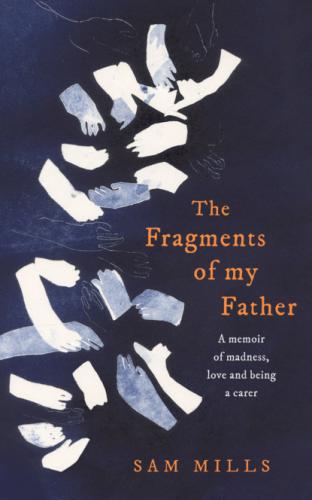THE FRAGMENTS OF MY FATHER
A memoir of madness, love and being a carer
Sam Mills
4th Estate
An imprint of HarperCollinsPublishers
1 London Bridge Street
London SE1 9GF
This eBook first published in Great Britain by 4th Estate in 2020
Copyright © Sam Mills 2020
Image © Heritage Image Partnership/Alamy
Cover photograph courtesy of the author
Sam Mills asserts the moral right to be identified as the author of this work
A catalogue record for this book is available from the British Library
Information on previously published material appears here.
All rights reserved under International and Pan-American Copyright Conventions. By payment of the required fees, you have been granted the non-exclusive, non-transferable right to access and read the text of this e-book on-screen. No part of this text may be reproduced, transmitted, down-loaded, decompiled, reverse engineered, or stored in or introduced into any information storage and retrieval system, in any form or by any means, whether electronic or mechanical, now known or hereinafter invented, without the express written permission of HarperCollins
Source ISBN: 9780008300623
Ebook Edition © June 2020 ISBN: 9780008300609
Version: 2021-02-24
This is a true story, but I have altered some names and other details to protect the privacy, and conceal the identities, of certain individuals.
For L.K.
And in loving memory of my mother.
Contents
Copyright
Author’s Note
Dedication
Part I
Chapter 1
Chapter 2
Chapter 3
Chapter 4
Chapter 5
Chapter 6
Chapter 7
Chapter 8
Chapter 9
Chapter 10
Chapter 11
Chapter 12
Chapter 13
Part II
Chapter 14
Chapter 15
Chapter 16
Chapter 17
Chapter 18
Chapter 19
Chapter 20
Chapter 21
Chapter 22
Chapter 23
Chapter 24
Part III
Chapter 25
Chapter 26
Chapter 27
Chapter 28
Chapter 29
Chapter 30
Chapter 31
Chapter 32
Chapter 33
Chapter 34
Chapter 35
Chapter 36
Chapter 37
Permissions
Select Bibliography
Notes
Acknowledgements
About the Author
By the Same Author
About the Publisher
This world of human beings grows too complicated, my only wonder is that we don’t fill more madhouses: the insane view of life has much to be said for it – perhaps its the sane one after all: and we, the sad sober respectable citizens really rave every moment of our lives and deserve to be shut up perpetually.
Virginia Woolf to Emma Vaughan, 23 April 1901
It’s a Friday night in early 2016 and I am staring at the streaky paintwork of a toilet door. It is locked. It has been locked for the past two hours. The skin on my knuckles is pink from repeated banging.
I call out, ‘Dad, are you okay?’
There is a long silence.
Then, eventually, comes a reply:
‘I’m … okay … I’ll come out … in … a …’
I go downstairs, but the moment I reach the hallway, I feel I should venture back up, though it will only lead to a dead-end: the blank face of the toilet door again. By now, I have become familiar with its streaky whiteness, the thick and fine delineations of brushwork preserved in the white gloss, my brother’s DIY job. Through the hall window the sky is filled with the blue smoke of twilight. There is that sparkle in the air as people leave work and head for the pub or home. If they saw our house, what assumptions would they make? It’s a semi-detached in a little cul-de-sac, with a neat garden: I would have assumed it was a house where conventional people lived out happy, boring lives.
I suffer the vertigo of uncertainty. Over the past six months, I’ve spoken to several people on the phone for advice about my father. They’ve all asked the same question: ‘Are you his carer?’ And I’ve always replied: ‘No, I’m his daughter.’ The term ‘carer’ feels too clinical. I help my dad because he is my dad. But I’m
